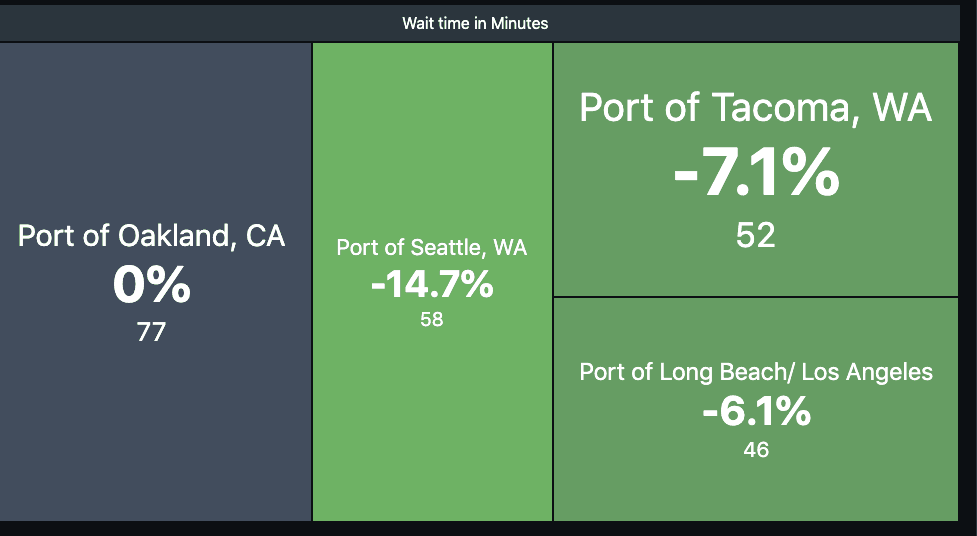July was a busy month for containerized goods movements in the trans-Pacific market as U.S. West Coast ports reported the highest number of inbound boxes for 2019. But overall imports are trending below last year’s levels, which has forced ocean carriers to lower capacity in one of the busiest shipping lanes.
The four largest container ports on the U.S. West Coast — Los Angeles, Long Beach, Seattle-Tacoma and Oakland — reported just over 1 million twenty-foot equivalent units (TEUs) in boxes coming into their gateways during July. The total was the highest in a month since December, which was near the tail end of the import front-loading boom.

Ocean carriers likewise saw a better July. Ocean Network Express (ONE) reported that its eastbound trans-Pacific container liftings reached their highest level in July at 269,000 TEUs.
But the import numbers, which serve as a proxy for truck and rail demand at the nation’s large ports, suggest 2019 will be no repeat of 2018. Overall, July imports are essentially flat with last year.
Moreover, year-to-date volumes at the West Coast ports, the largest gateway for Asian imports into the U.S., are lower. The West Coast ports in total saw 6.24 million TEUs in boxes from January through July, a 2% drop from the same period in 2018.

The Northwest Seaport Alliance (NWSA), which reported a 6% drop in July imports into the Seattle-Tacoma region, noted comparable growth rates will be biased downward as 2018 was “an unusually robust year as shippers increased orders in advance of tariffs.”
This year’s peak season, though, is starting up slowly. In July, ocean carriers “canceled several sailings to manage container capacity in the trans-Pacific trade,” the NWSA said.
Ocean carriers have been adjusting capacity throughout the summer in response to slower demand. U.K.-based container research firm PR News Service said Korea’s Hyundai Merchant Marine (HMM) dropped capacity on its weekly trans-Pacific PS1 service by 20% through mid-June.
The carriers also have been reshuffling the West Coast ports they call on, further reducing volumes. THE Alliance, which includes Hapag-Lloyd (FSE: HLAG), ONE, Yang Ming and HMM, replaced Long Beach with a Los Angeles port call call on its PS7 service, according to container shipping research firm BlueWater Reporting. Another THE Alliance service, PS3, dropped a vessel call in Los Angeles for one in Long Beach.
As August winds down, the ports appear to be largely free of any major congestion. According to SONAR data, Wait times for trucks at three of the biggest ports are down month-on-month while Oakland’s wait times are flat.

Major U.S. sued for selling bad marine fuel
Valero is target of three lawsuits alleging damage from bad marine fuel. (TradeWinds)
Iranian tanker has no plans to dock in Greece
U.S. warns countries against allowing call of Iranian tanker released by U.K. (Reuters)
Maersk partners with Indian truck broking site
Blackbuck owns and operates the site, with Maersk adding expertise in container trucking. (The Loadstar)










